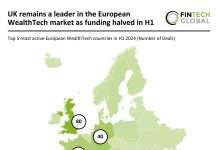It seems as if 61% of financial institutions now feel positive towards open banking, yet 42% do not have clear strategy for realising its benefits, according to new research from open banking platform Tink.
The researchers polled 290 senior decision makers at financial institutions in 12 European countries. They also revealed that 52% feel more positive about open banking than they did in 2019. Although, 1% felt more negative about opportunities.
Nevertheless, while financial firms seem to have become more optimistic about open banking, 46% were not confident that benefits were widely understood within their organisation.
“While there’s growing confidence in open banking, many still have not fully grasped its true potential,” said Daniel Kjellén, co-founder and CEO of Tink. “Some financial institutions have missed a trick by approaching open banking purely as a PSD2 compliance issue, while others view it as a long-term strategic play that involves a significant shift in their business model over time. Both these mindsets mean financial institutions risk missing out on the open banking business boost there for the taking today.
“For savvy and nimble institutions who look beyond compliance and can innovate fast, there is a huge opportunity for short term, quick win value creation through open banking. By behaving more like third party providers (TPPs) and making the most of APIs already on the market, institutions can reap the immediate benefits — creating improved products and services and enhancing customer experience.”
The research also showed that the key executives in the industry are making partnerships with FinTech firm a priority, with 22% having at least one such partnership to access open banking technologies, with some having up to five different partnerships.
Moreover, 69% of the people polled said their organisations had increased their number of FinTech partnerships in 2019 and that establishing a FinTech partnership will be a priority over the next 12 months.
“To reap the benefits of open banking, financial institutions must translate their open banking strategy into a meaningful technology, product and service roadmap,” said Kjellén. “This journey can be accelerated by building successful and strategic partnerships with fintechs that can provide the technology, expertise and vision to drive open banking value creation.
“One of the promises of open banking is making financial services more digitally accessible to both consumers and businesses alike. With Cororavirus accelerating the shift toward digital channels, we expect positivity towards open banking to continue to grow as more financial institutions concentrate on the digital transformation of products and services. As a result, we anticipate a range of new open banking use cases to emerge that deliver immediate value to businesses and consumers alike by enhancing customer engagement and improving access to services.”
Copyright © 2020 FinTech Global











